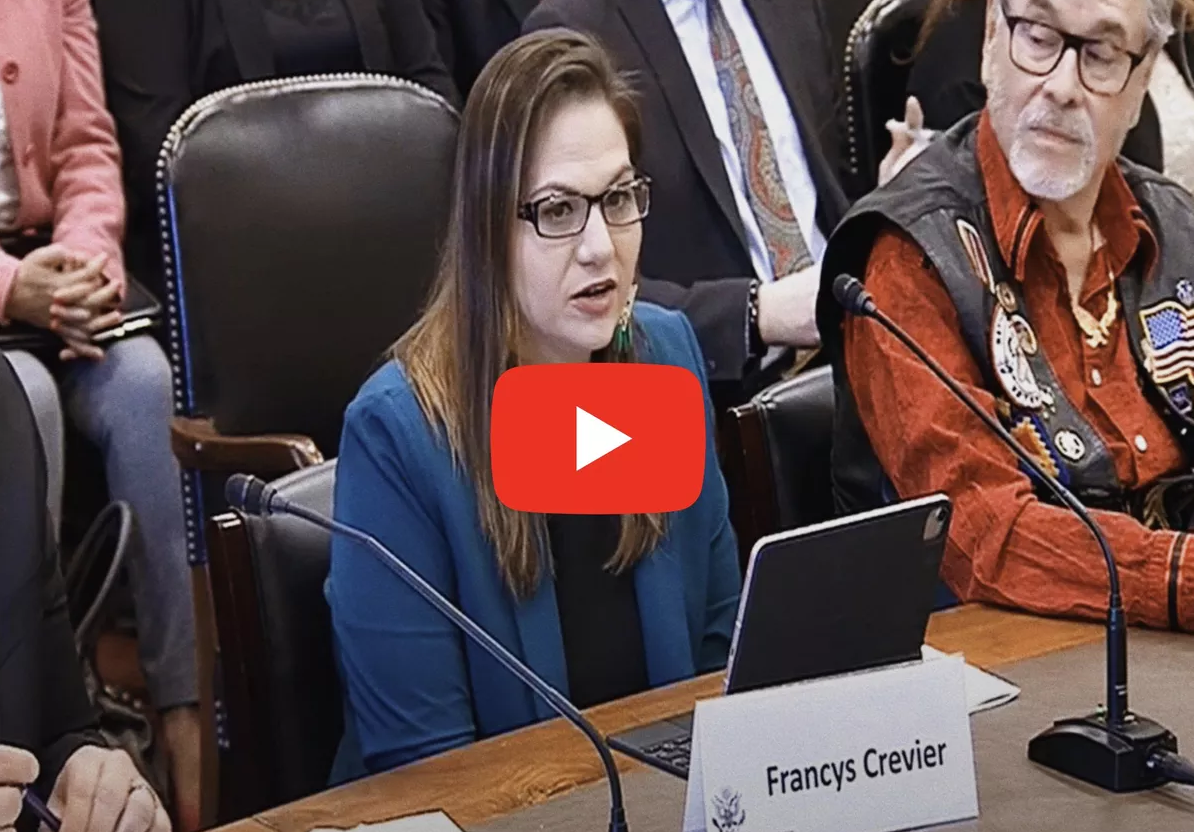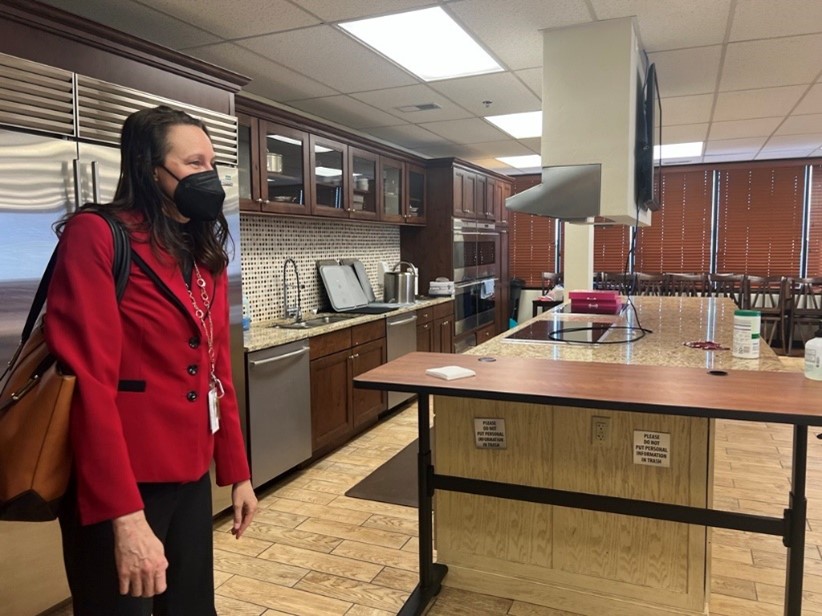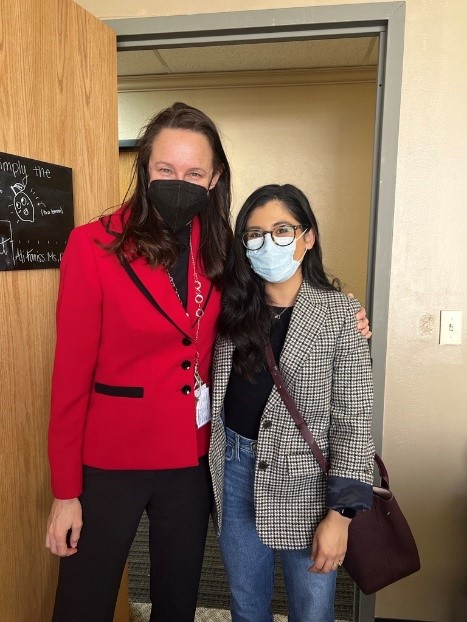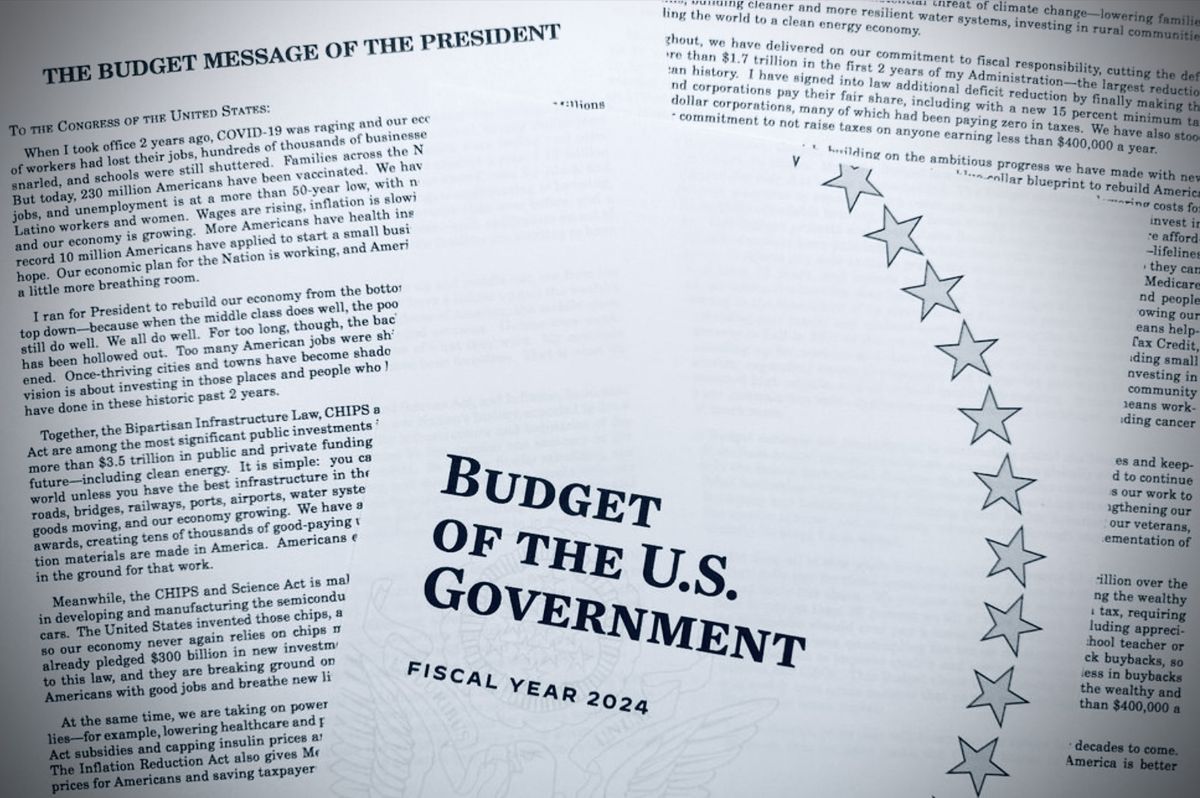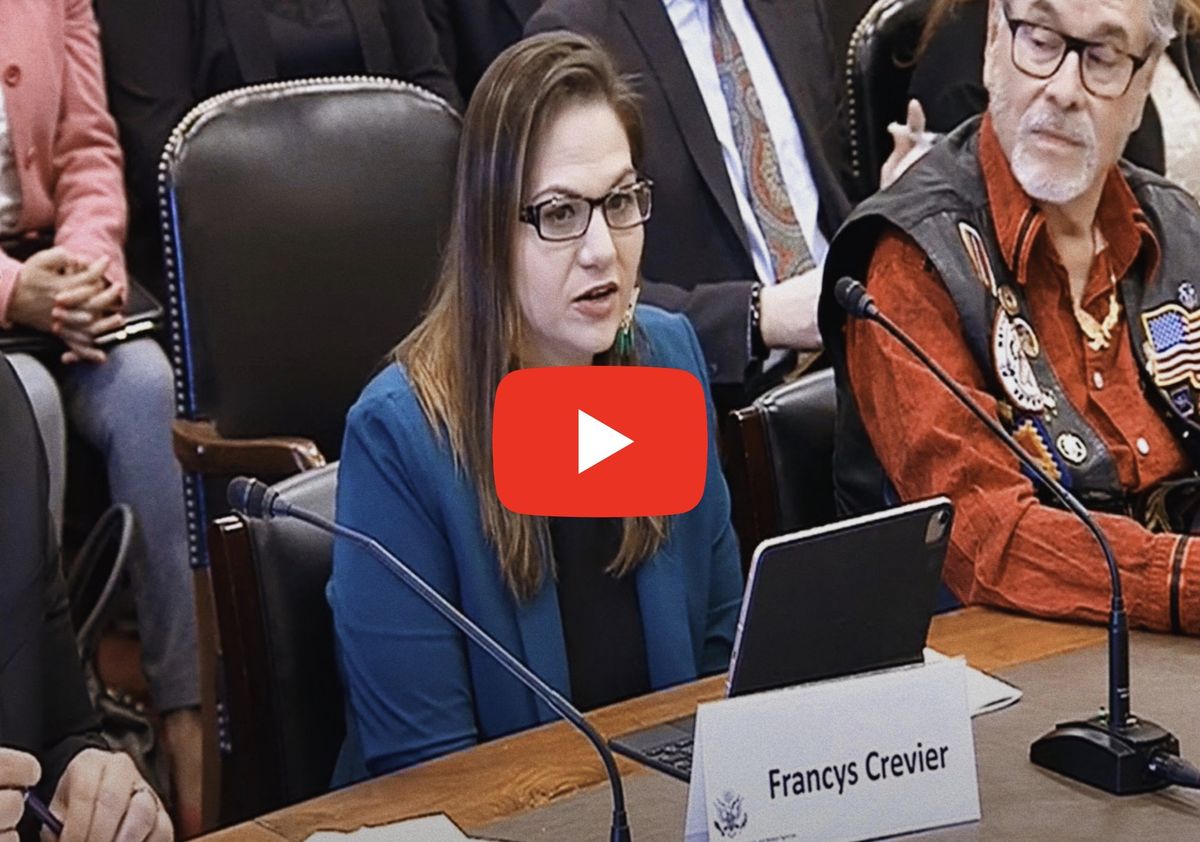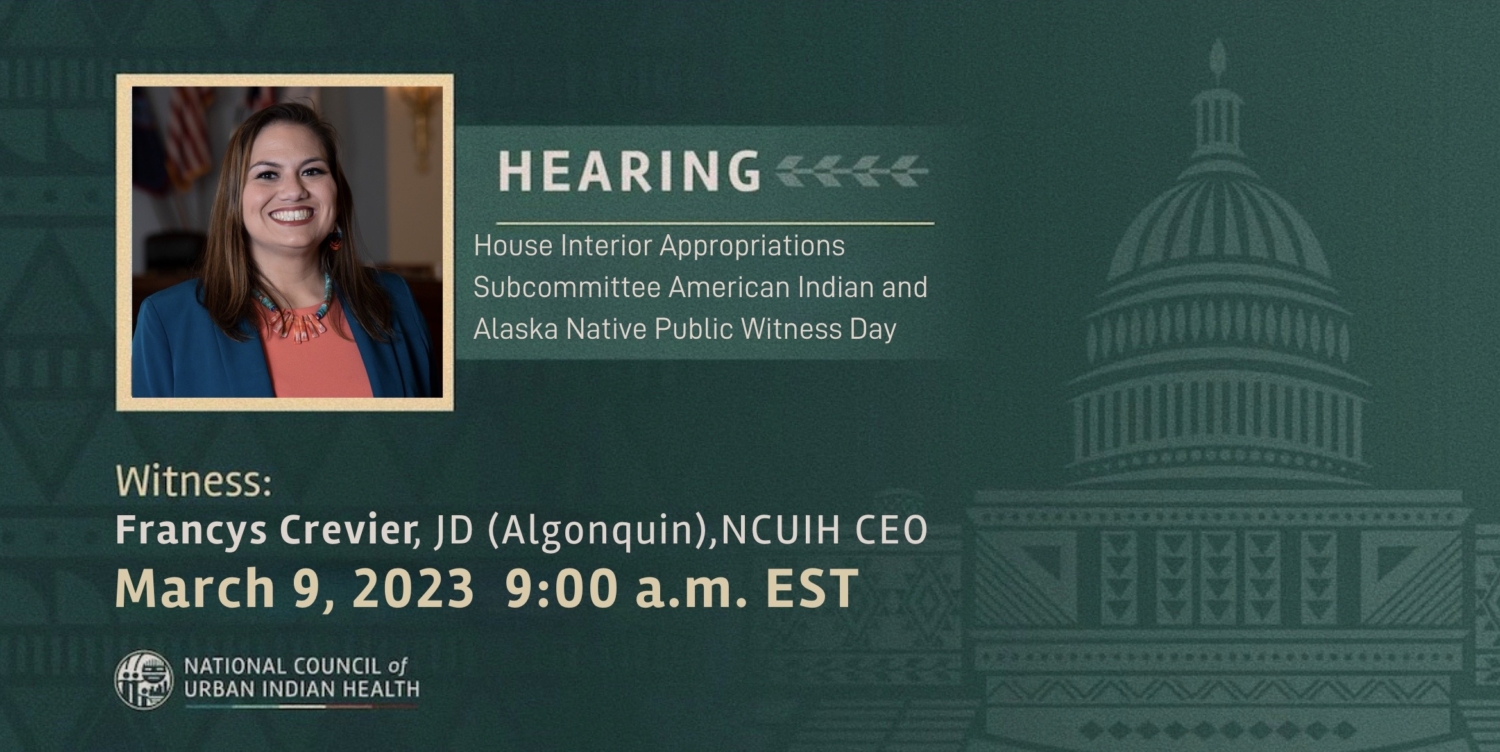Urban Indian Health Policy Updates
Greetings and Happy Spring! In this month’s newsletter, we bring you important updates and information regarding our latest developments and initiatives within the Urban Indian Health Community.
1 Big Thing: Sec Deb Haaland Hosts MMIP Commission Including NCUIH President
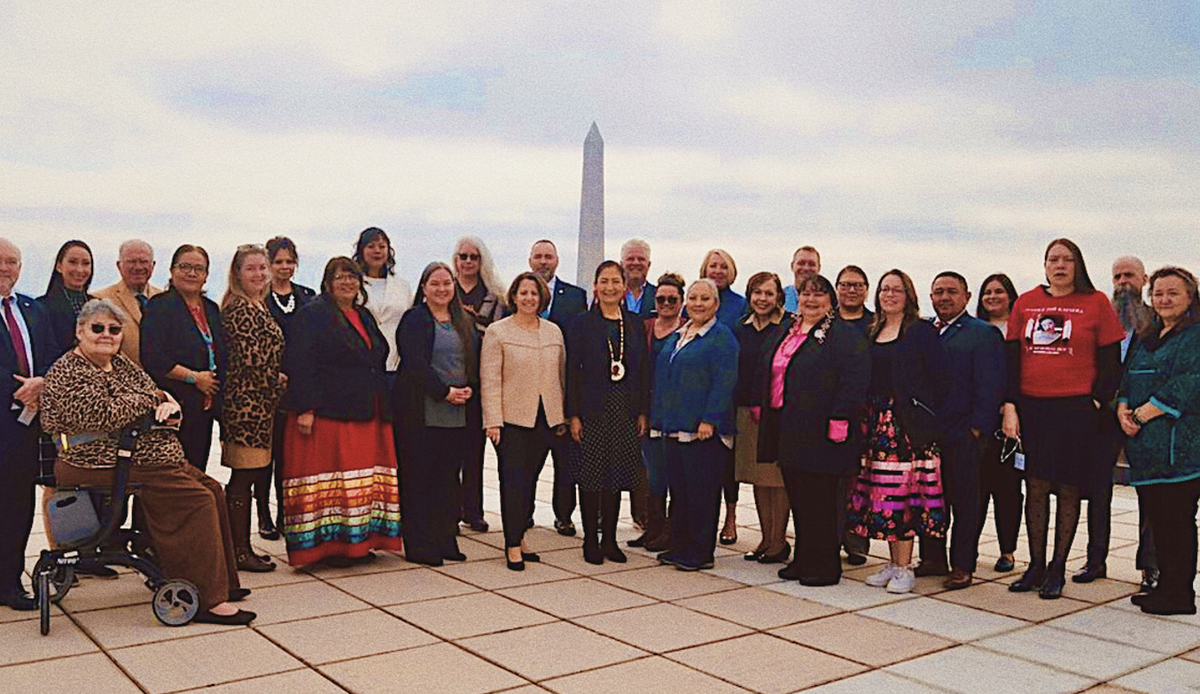
Secretary Deb Haaland alongside members of the Not Invisible Act Commission.
The National Council of Urban Indian Health (NCUIH) President, Sonya Tetnowski (Makah), joined Secretary of the Interior Deb Haaland for a meeting as a member of the Not Invisible Act Commission.
Why it matters: The Commission aims to combat the epidemic of missing and murdered American Indians and Alaska Natives (AI/ANs) and features a diverse group of experts and stakeholders who are tasked with conducting a comprehensive study of the issue and making recommendations to the federal government on how to address it. The Commission’s work is ongoing, and it represents an important step towards addressing this critical issue and ensuring justice and safety for American Indian and Alaska Native communities.
“A lack of urgency, transparency, and coordination has hampered our country’s efforts to combat violence against American Indian and Alaska Native people. In partnership with the Justice Department and with extensive engagement with Tribes and other stakeholders, the Interior Department is marshaling our resources to finally address the crisis of violence against Indigenous peoples,” —Secretary Deb Haaland.
President Biden’s FY 2024 Budget Includes Increased Investment in the Indian Health Service

President Biden delivering his Budgetary speech with a quote from IHS Director Tso.
On March 9, 2023, the President released the annual budget proposal for FY 2024 with commitment that by 2025, the IHS budget would shift from mostly discretionary to all mandatory funding as a long-term solution. The Administration also continues to prioritize advance appropriations for IHS until this solution is enacted.
By the numbers:
- Indian Health Service Overall: $9.7 billion, an increase of $2.5 billion or 36% above FY23 enacted and $41.7 billion less than requested by the Tribal Budget Formulation Workgroup (TBFWG).
- Urban Indian Health: $115 Million for an increase of $25 million or 27% above FY 2023 enacted and $858.6 million less than requested by the TBFWG.
- Reauthorizes and Increases Funding for the Special Diabetes Program for Indians: The budget proposes to reauthorize the Special Diabetes Program for Indians and provide $250 million in FY 2024, $260 million in FY 2025, and $270 million in FY 2026 in new mandatory funding. SDPI’s current authorization is set to expire on September 30, 2023.
- Proposes New Program to Increase Public Health Capacity and Infrastructure: The budget also proposes new funding of $150 million in FY 2025 to address public health capacity and infrastructure needs in Indian Country. This funding would support an innovative hub-and-spoke model to address local public health needs in partnership with tribes and UIOs.
Go deeper:
- President’s FY 2024 Budget
- IHS FY 2024 Congressional Justification
- OMB FACT SHEET
- HHS FY 2024 Budget in Brief
On March 9, 2023, NCUIH CEO Francys Crevier (Algonquin), testified before the House Interior Appropriations Subcommittee as part of AI/AN Public Witness Days regarding FY 2024 funding for the IHS. NCUIH was invited to testify on the critical health needs of AI/ANs living in urban areas and requested full funding for IHS.
“Native people deserve full, healthy lives. We cannot continue to rely on short-term solutions that only address the symptoms of the problem. We ask for full funding for IHS and the urban Indian health line item. Make advance appropriations and 100% FMAP for UIOs permanent. Protect us from sequestration now,” —Francys Crevier (Algonquin), NCUIH CEO.
Go deeper:
- Read NCUIH’s written testimony.
- Watch NCUIH’s testimony.
NCUIH Presents Before the American Academy of Pediatrics Committee on Native American Child Health
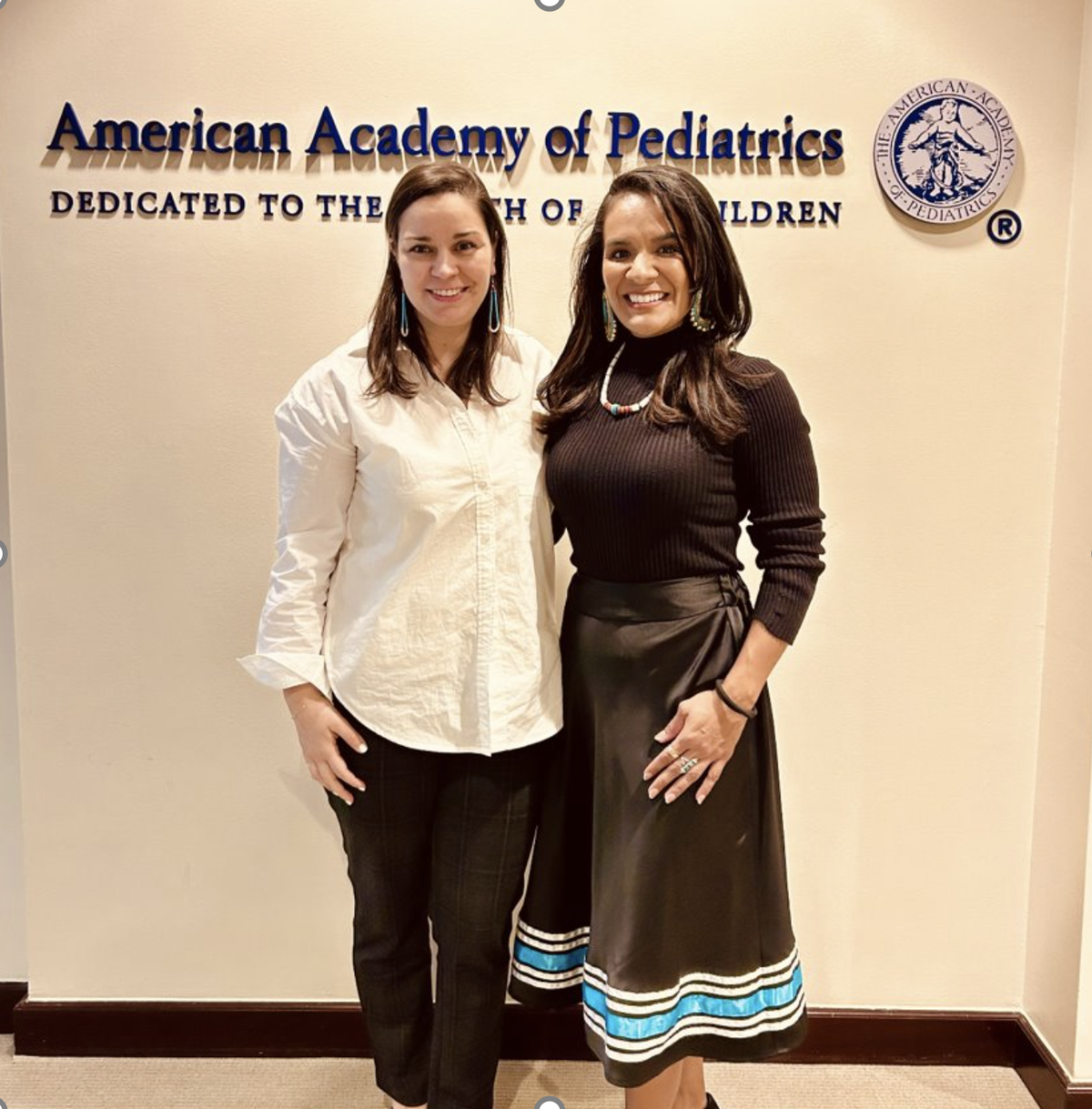
NCUIH’s Director of Congressional Relations, Lycia Maddocks (Quechan), and AAP Chairperson, Allison Empey MD, FAAP.
NCUIH’s Director of Congressional Relations, Lycia Maddocks, recently presented before the American Academy of Pediatrics (AAP) Committee on Native American Child Health (CONACH) to discuss NCUIH’s policy priorities and efforts in the Native child health space.
Why it matters: The presentation was an opportunity for NCUIH to showcase its initiatives aimed at improving the health outcomes of AI/AN children, including efforts to increase access to healthcare services, improve health education, and address disparities in care. Maddocks’ presentation is a part of NCUIH’s ongoing advocacy efforts to promote policies and programs that support the health and well-being of urban Indian communities. By engaging with organizations like the AAP, NCUIH can work to ensure that the unique healthcare needs of AI/AN children are being addressed and that their voices are being heard.
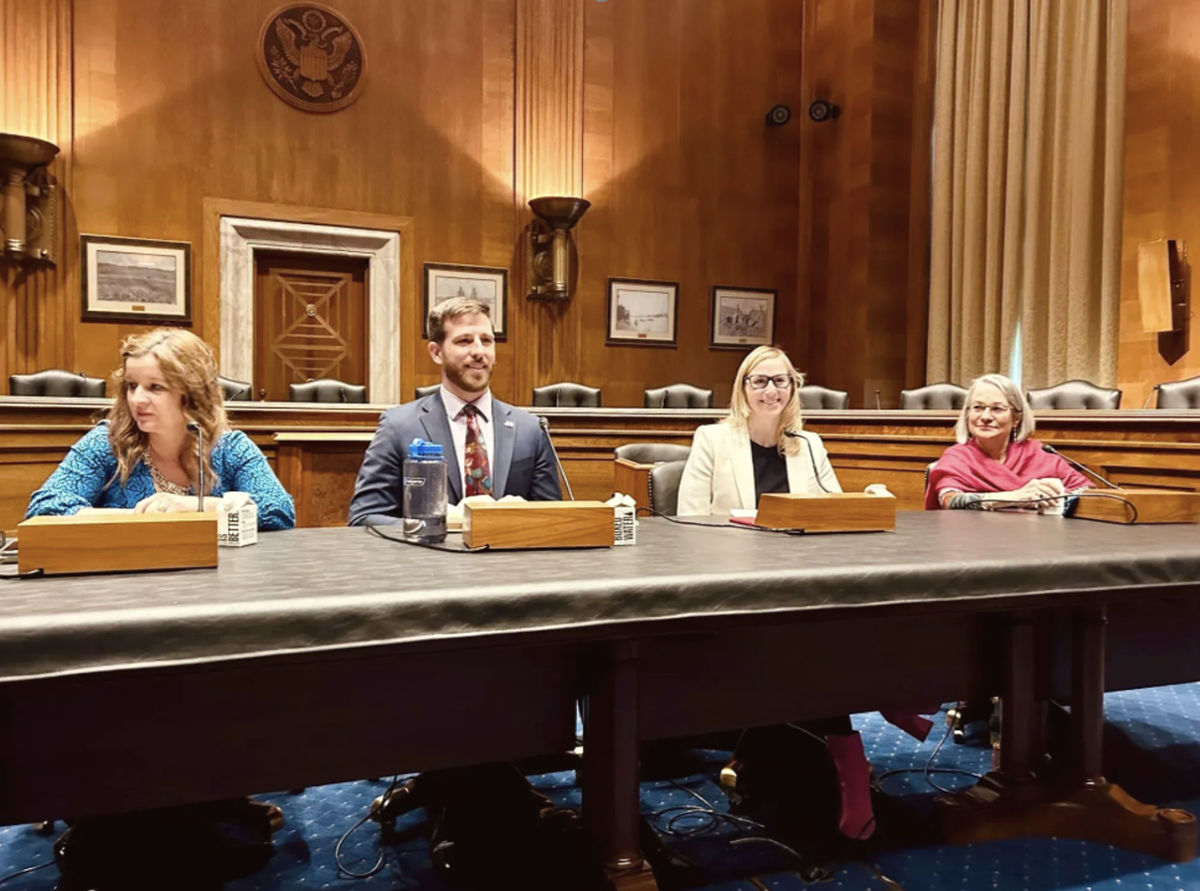
Policy and Communications Vice President, Meredith Raimondi, alongside AAP panelists.
On February 28, Meredith Raimondi, the Vice President of Policy and Communications at NCUIH, participated in a panel discussion hosted by AAP to discuss the importance of advance appropriations for the Indian Health Service (IHS), which was included in the Fiscal Year (FY) 2023 spending bill.
What Happened: NCUIH spoke to the importance of advance appropriations and how it would provide funding for IHS programs in advance of the fiscal year, giving urban Indian organizations (UIOs) greater stability in their budgeting and planning processes.
Did you know?: Prior to the inclusion of advance appropriations in the FY2023 spending bill, the Indian healthcare system—including IHS, Tribal facilities, and UIOs—was the only major federal healthcare provider funded through annual appropriations. Advance appropriations will stabilize IHS funding and allow for long-term planning by insulating Indian healthcare providers from government shutdowns and continuing resolutions. AI/ANs will no longer be uniquely at risk of death or serious harm during delays in an FY 2024 funding agreement.
NCUIH Participates in SAMHSA’s Native Veterans Expert Panel Discussion and Visits Oklahoma City Indian Clinic

Captain Karen Hearod, Director of the Office of Tribal Affairs and Policy, SAMHSA and NCUIH’s Federal Relations Manager, Alexandra Payan.
NCUIH Federal Relations Manager, Alexandra Payan, participated in the Substance Abuse and Mental Health Services Administration’s (SAMHSA) AI/AN Veterans Expert Panel Discussion on the development of a virtual training tool related to AI/AN military and veteran suicide prevention and provided insight on the unique needs of Native veterans who reside in urban areas.

OKCIC Vice-President of Policy, Diabetes and Prevention, Michelle Dennison and NCUIH’s Federal Relations Manager, Alexandra Payan.
Ms. Payan also visited the Oklahoma City Indian Clinic and had the opportunity to meet with staff and learn more about the clinic’s programs and services, as well as the challenges and opportunities facing UIOs in Oklahoma and across the country. By gaining a firsthand understanding of the issues and needs facing UIOs, NCUIH can better advocate for policies and programs that support their work and ensure access to high-quality, culturally competent healthcare for AI/AN communities. Read more about Ms. Payan’s visit here.
NCUIH’s 2022 Policy Assessment Now Available

NCUIH’s 2022 Policy Assessment can be accessed on the NCUIH website.
NCUIH hosted five focus groups to identify UIO policy priorities for 2023 and to evaluate NCUIH’s progress toward achieving goals from previous years.
The Assessment covers a wide range of issues related to AI/AN health and well-being, including healthcare access and funding, mental health, substance abuse, and social determinants of health.
- The assessment also includes an analysis of the policy landscape and the impact of recent policy changes on AI/AN communities.
- Overall, the assessment highlights both the progress that has been made in improving AI/AN health outcomes and the ongoing challenges that remain.
- It provides a valuable resource for policymakers, advocates, and other stakeholders who are working to advance policies and programs that support the health and well-being of AI/AN communities.
- Read the 2022 Policy Assessment
Stay tuned for NCUIH’s 2023 Policy Priorities Document.
IHS 2023 Workplan, Update on UIO Infrastructure Study, & Other Federal Updates
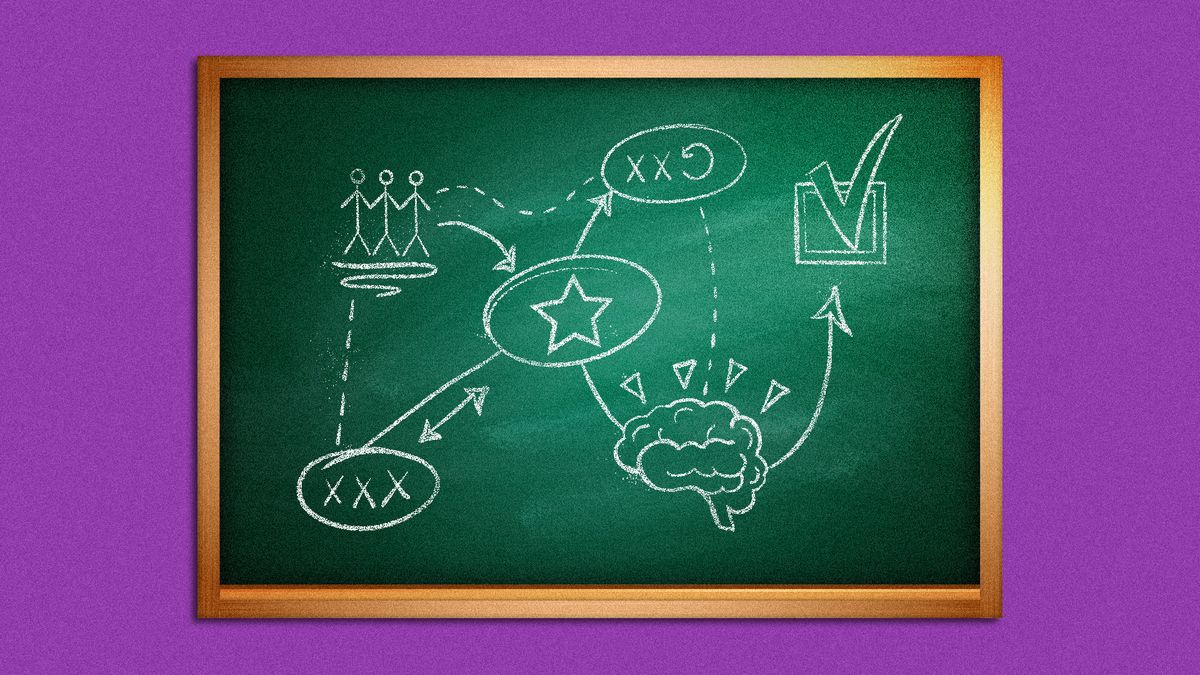
IHS 2023 Work Plan Summary Released.
- The big picture: IHS is developing and implementing a work plan to identify, assess, report, and manage enterprise-level risks that impact the IHS environment. In support of the agency’s enterprise risk management efforts, the goal of the 2023 Agency Work Plan is to make an immediate impact on the Indian health system in alignment with the IHS mission and Strategic Plan.
IHS released a letter to Urban Indian Organization Leaders to clarify use of funds requirements arising from the FY 2022 Infrastructure Study.
- The bottom line: In the letter, IHS clarifies additional $800,696 in funding allocated in the Consolidated Appropriations Act, 2022 is not intended for UIO infrastructure study activities, emphasizing that “…the joint explanatory statement accompanying the Consolidated Appropriations Act, 2022, does not mean Congress intends to allocate additional funding for UIO Infrastructure Activities. Instead, Congress intends to ensure that the additional funding provided remains in the Direct Operations accounts of IHS management use.” IHS notes that this aligns with UIO Confer recommendations to avoid using the funding for any additional UIO Infrastructure Study activities.
NCUIH-Endorsed Bridging Agency Data Gaps & Ensuring Safety (BADGES) for Native Communities Act Reintroduced

On March 1, 2023, Representatives Ruben Gallego (D-AZ), Dan Newhouse (R-WA), and Sharice Davids (D-KS) reintroduced the BADGES for Native Communities Act.
- The bill addresses federal inefficiencies that hurt Bureau of Indian Affairs law enforcement recruitment and retention, increases the effectiveness of federal missing persons resources, and gives resources to Tribes and states to combat the crisis of missing and murdered Indigenous women and girls.
“This legislation is one way to help bring justice and closure to Native families and communities and hopefully will make it so fewer Native families have to suffer this terrible burden in the future. We must continue to advocate for policies that prioritize the safety and wellbeing of Indigenous communities, and the passage of this Act is a critical step in that direction,” —Francys Crevier (Algonquin), NCUIH CEO.
NCUIH Monitoring Supreme Court Case: Department of Interior v. Navajo Nation
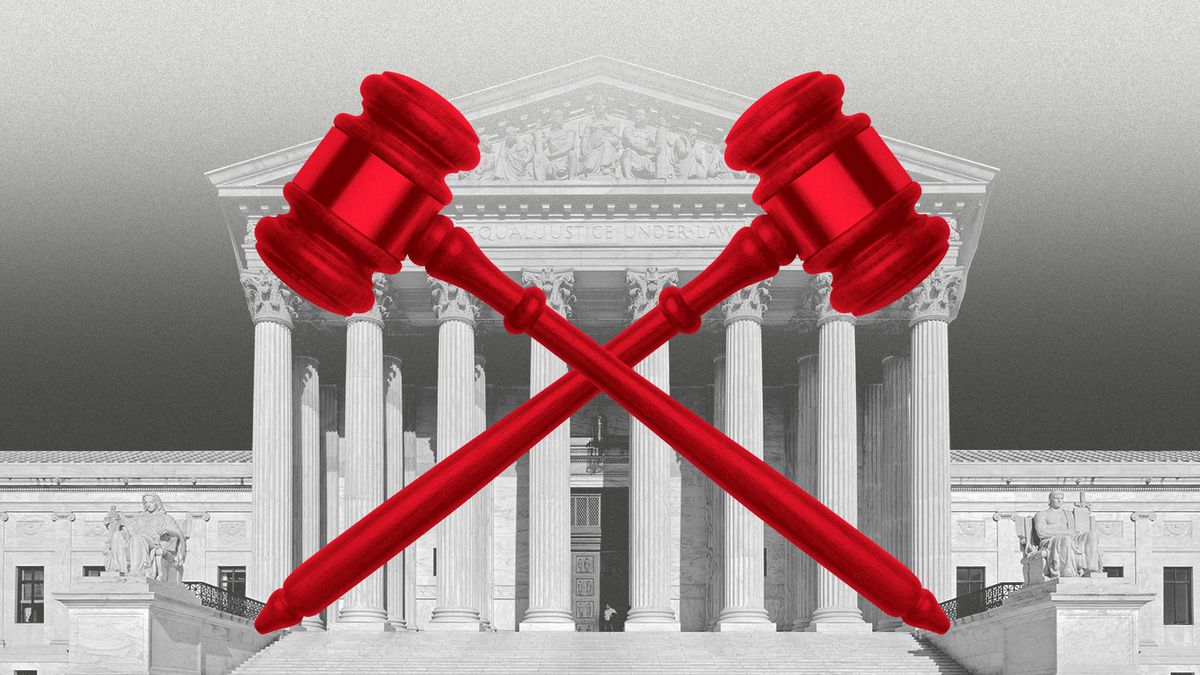
The United States Supreme Court heard arguments regarding Navajo water rights and the US government’s obligations to the Tribe.
The Issue at Hand: The case concerns whether the US government is required to compensate the Navajo Nation for the use of its water by the San Juan River, which is a crucial source of water for the Tribe. The Navajo Nation argues that the US government has not fulfilled its responsibilities under the Winters Doctrine, which grants Native American tribes the right to use water on their reservations for necessary purposes. The government, on the other hand, contends that it has already met its obligations under the doctrine and that the Navajo Nation is not entitled to additional compensation.
What’s Next: Following Monday’s hearing, the next step in the Navajo Nation water rights case is for the court to issue a ruling, which is expected to occur later this year.
Why it matters: The decision could have significant implications for tribal water rights and the government’s obligation to Native American tribes. If the court rules in favor of the Navajo Nation, it could set a precedent for other tribes seeking compensation for the use of their water resources. On the other hand, if the court rules in favor of the government, it could limit the extent of the federal government’s responsibility to Native American tribes under the Winters Doctrine. Regardless of the outcome, the case is likely to have a significant impact on the relationship between the US government and Native American tribes and could shape policy decisions for years to come.
Upcoming Events and Important Dates

Important Dates:
- March 23- Indian Health Service Virtual Urban Confer on Executive Order 14001 – Improving Access to Supplies from Federal Partners
- April 5- Veteran Affairs Advisory Committee on Tribal and Indian Affairs – Oregon Meeting (in-person)
- April 18-19- Health and Human Service Annual Tribal Budget Consultation (in-person)
- April 19- NCUIH Monthly Policy Workgroup Meeting
Upcoming Comments and Submissions:
- March 23- NCUIH is submitting written testimony to the House Appropriations Subcommittee on Labor, Health and Human Services and Education on urban Indian health priorities.
- March 24- NCUIH working with UIOs and submitting budget requests to Congress.
- April 7 – Comment deadline for IHS on HIT Modernization: Preparing for Change
- April 24 – Comment deadline for IHS on Executive Order 14001 – Access to Federal Medical Supplies
- May – HHS Budget Testimony
ICYMI:
- NCUIH met with the White House Council on Native American Affairs (WHCNAA) on Feb. 22 to further discuss the Homeless Veteran Initiative that was announced at the White House Tribal Nations Summit.
- NCUIH has conducted four (4) UIO interviews to gather information regarding Primary Care Case Management programs (PCCMs) and Indian Managed Care Entities (IMCEs) for this year’s NORC report.
- Medicaid and Health Reform Policy Committee (MMPC) Face-to-Face Virtual Meeting was held on March 14.
- Tribal Leaders Diabetes Committee (TLDC) Quarterly meeting was held on March 14-15.
- CMS Tribal Technical Advisory Group (TTAG) held it’s Face-to-Face meeting with CMS leadership on Mar. 15-16.
One last thing: NCUIH Annual Conference Registration and Award Nominations

Our conference will be held May 15-18, 2023 with the option of joining us in-person in Washington, D.C., or virtually. This year’s theme is Honoring Our Ancestors & Preparing for the Next Seven Generations: NCUIH Celebrates 25 Years of Health Leadership. (Register Here)
This year’s theme, “Honoring Our Ancestors & Preparing for the Next Seven Generations: NCUIH Celebrates 25 Years of Health Leadership,” is a great opportunity to celebrate and recognize the accomplishments of the urban Indian health community.
As part of this celebration, we will be recognizing individuals and organizations that have made significant contributions to the field of urban Indian health. We are pleased to invite you to nominate candidates for the following awards:
1. UIO Staff Member of the Year
2. Local Urban Indian Leadership Award
3. UIO Innovation Award
4. Urban Indian Legacy Award
5. Rising Ally Award
6. National Urban Indian Policy Impact Award
7. Native Veterans Health Ally Award
Please use the linked Asana form to submit your nominations. The form includes instructions on the nomination process and the criteria for each award. Please note that the deadline for nominations is Monday, April 17.
Thank you for all your hard work and advocacy!

